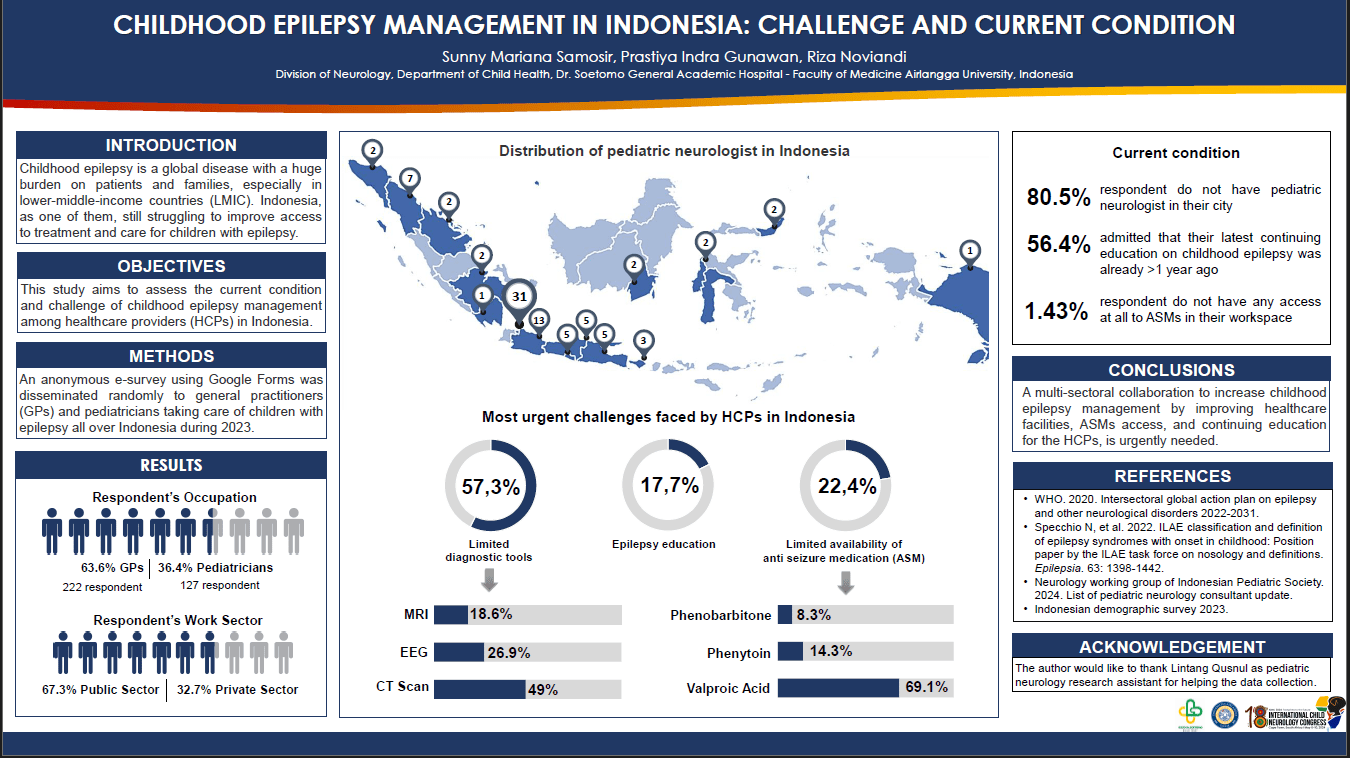Childhood Epilepsy Management In Indonesia: Challenge And Current Condition
Background: Childhood epilepsy is a global disease with a huge burden on patients and families, especially in lower-middle-income countries (LMIC). Indonesia, as one of them, still struggling to improve access to treatment and care for children with epilepsy. This study aims to assess the current condition and challenge of childhood epilepsy management among healthcare providers (HCPs) in Indonesia. Methods: An anonymous e-survey using Google Forms was disseminated randomly to general practitioners (GPs) and pediatricians taking care of children with epilepsy all over Indonesia during 2023. Result: Data from 349 participants consisting of 127 pediatricians (36.4%) and 222 GPs (63.6%) from 38 provinces were analyzed. About 235 participants (67.3%) work in the public sector, while the rest in private. Challenges faced by the HCPs are limitation of diagnostic tools (57.3%), epilepsy education (17.7%), and availability of anti-seizure medication (ASM) (22.4%). Almost half of the participants (49%) have computed tomography scans, while only 26.9% and 18.6% have electroencephalography and magnetic resonance imaging, respectively. Most of the respondents (80.5%) don’t have a pediatric neurologist in their city. The three most used ASMs are valproic acid (69.1%), phenytoin (14.3%), and phenobarbitone (8.3%). Some of the respondents (1.43%) don’t have any access at all to ASMs in their workplace. Most of the HCPs (56.4%) admitted that their latest continuing education on childhood epilepsy was already more than 1 year ago. Conclusion: A multi-sectoral collaboration to increase childhood epilepsy management by improving healthcare facilities, ASMs access, and continuing education for the HCPs, is urgently needed.
Sunny Mariana Samosir
Indonesian Pediatric Society
Indonesia
Prastiya Indra Gunawan
Indonesian Pediatric Neurology Association
Indonesia
Riza Noviandi
Indonesian Pediatric Neurology Association
Indonesia
